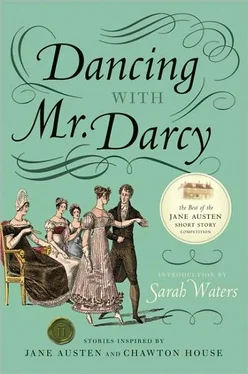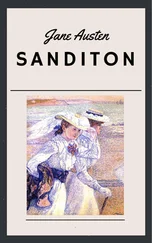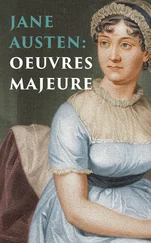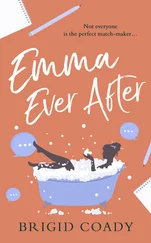They pulled Mrs Bennet out first, protesting furiously that they should have taken her nephew before her. Gradually the rest of the cast was disinterred, scratched and bruised but, with the exception of Mr Darcy’s broken arm, essentially undamaged. The chief fireman came over as the survivors were being solicitously wrapped in blankets. Someone had managed the English conjuring trick of hot sweet tea for emergencies.
The officer surveyed them. ‘You were lucky.’
Lady Baverstoke turned from surveying a house that had not a window left in it with wobbling lip and welling eye. She said, ‘lucky?’
‘If that had hit the house you’d all have been killed. As it was—‘He indicated the crater that had once been a croquet lawn. ‘You’d probably have been all right if it hadn’t been for that rotten old ceiling.’ It was too much for Lady Baverstoke who broke down again. The cast tried to comfort her but the fact remained that her drawing room was ruined and the rest of her house not much better. She was quite inconsolable and perhaps it was a little tactless of Mrs Bennet to declare, after a few more minutes, ‘well, we’ll simply have to move the play to the church hall.’
The cast gaped. Even Lady Baverstoke was silenced. Then Mr Darcy smiled at Mrs Bennet. ‘Maybe a sling will improve my performance.’
Mrs Bennet turned on him a face like the rising sun.
‘Oh, Ken, how noble of you!’ The smile vanished under a tide of relief. ‘Thank goodness I didn’t have time to bring those chairs over from the church hall.’
My inspiration: A Jane Austen novel seems the antithesis of violent chaos, although these novels were written between the Terror and Waterloo. They appear to be concerned with a thin veneer of civilised behaviour among an exclusive minority yet they have survived and flourished among readerships very different from the ones for which they were written. Jane Austen has always been associated with the country house but has proved herself well able to survive and flourish in much tougher circumstances.
Cleverclogs
Hilary Spiers
Yesterday I read 27,373 words. Not counting rereading the cereal packet. It would have been more but Dad took my torch away last night so I had to kneel on my bed to try to read by the light of the street lamp outside, with my head poking through the curtains. That was hard work, because I had to keep listening out for Mum’s footsteps on the stairs. She’s really sneaky, taking her shoes off at the bottom and creeping up to catch me out. ‘You’ll go blind reading in the dark,’ she says. Which is stupid because all you are doing when you’re reading is using your eyes, just the same as if you were looking where you are going or shopping in the supermarket or enjoying the view. Anyway, I wouldn’t have had to read the cereal packet if Dad hadn’t said at breakfast, ‘It’s rude to read at the table,’ and taken my book away. He’s always doing that.
The book I’m reading at the moment (or was until Dad took it away from me) is Sense and Sensibility by Jane Austen. Granny lent it to me. Dad flicked through it and said to Mum, ‘Should she be reading this?’ like it was one of those fat books Mum reads on holiday that I’m not allowed to borrow. Mum shrugged and said, ‘It’s a classic,’ so Dad just put it on the counter until I’d finished my muesli. I hate muesli; when I stay over at Gina’s, she has those little packets with all the different cereals in them. Mum says they’re bad for your teeth, but what I had for breakfast had 22g of sugar per 100g, so I don’t think that’s very healthy either.
I worked out the number of words I’d read by using a formula. My formula is one page equals 350 words. You times the number of pages by 350 to get the total, and then add all the other words you’ve read during the day. You can count adverts and things like menus, but not road signs or shop names that you pass every day, because they’re not new. I read 60 pages of Sense and Sensibility today, so that makes 21,000 words already. Then I added all the words in lessons (in books and on the board) and the hymns in assembly. Plus the torn bit of newspaper someone had left on the seat by the bus stop. And it came to 27,373.
I overheard Uncle Terry say to Mum once, ‘She’s a right little bookworm’, like it was something not quite right. I looked it up. The dictionary said Bookworm: An organism, sometimes a literal worm, which harms books by feeding on their binding or leaves. Also a term for a person devoted to books. I think he meant the ‘also’ bit. I like the word devoted. It makes me think of Little Women. I’ve read that too.
I yearn to get back to Elinor and Marianne. Yearn is my word of the day. It means to long or ache or hanker for. I don’t like hanker much because it sounds too close to handkerchief which is not serious enough. Granny gave me a very old dictionary, which looks like someone has picked at the cover with their nails. I think it might be covered in leather because it smells a bit funny and the pages are blobby with little brown marks. I looked up yearn in that and it said: To have a strong, often melancholy desire. And I thought that suited Sense and Sensibility because that is how I feel about it. It makes me scrunch my toes up and hold my breath. I’ve just read the bit where Marianne falls ill because of the horrible Willoughby, which was so terrible I could hardly bear it (even though I think Marianne is a bit of an idiot sometimes) and I wanted it to go on forever at the same time. This is why it is such a good book, because it’s almost making you read it whether you want to or not.
Sometimes when I’m lying in bed at night, all the characters of all of the books I’ve read swim round my head in a mad dance. My head feels like it might burst with words sometimes and then I think that I’ve years and years of reading still to come and where do all the words go? Mrs Finch said in class that everything we ever see or do or read leaves a memory in our brains, but I’ve seen a picture of a brain and it’s so small. And if we can’t store all the words and stories, then how do we know we aren’t just reading the same things over and over without knowing it? That’s why I keep all the books I’ve read in my bedroom so I can prove to myself I know what they are about. Some of my friends test me sometimes, especially Harriet. She says, ‘Okay, cleverclogs, tell me what happens in the book,’ so I do. I tell her about all the characters and what happens to them and the sorts of things they say and how it makes me feel. I did that with The Lord of the Rings, but she said, ‘Oh, I’ve seen that on DVD so I don’t have to read it,’ and even though I told her that the books were miles better and that the films left loads of stuff out, she didn’t care. At first, Mrs Finch didn’t believe I’d read all three books – it’s called a trilogy – because she’d never met anyone as young as me who had. She didn’t read them until she was at university. I told her I hope they have loads of books at university because I don’t want to go there if it’s full of things like The Lord of the Rings that I’ve already read. Although I wouldn’t mind reading something like Pride and Prejudice again (but not straightaway), because there’s so much going on and you can learn a lot about life in olden times. Plus Mrs Bennet is really funny.
Once I’d learnt what a bookworm was, the word kept coming up all over the place. It was in the paper yesterday morning in an article about Jacqueline Wilson and I saw it on the back of a book I picked up in the local bookshop on the way home from school. I didn’t buy the book, I never do, unless it’s my birthday or something, but I love being in there, surrounded by the smell of books. Sometimes I think words just hang around in the background waiting to be noticed and then when they are they get sort of brighter so they stand out. I don’t like the ‘worm’ bit, but if that’s what the word is, then I suppose I’m stuck with it. I wonder if there are jobs for people to invent new words or better ones, because sometimes you come across something and there isn’t a word for it. Or perhaps there is, but I haven’t read it yet. I mean, why isn’t there a word for those days in September when the dew twinkles on the spiders’ webs in the privet hedge and the air feels like it’s decided just that morning that summer is over? Or the sensation you get when the melted cheese in cheese on toast sticks to the roof of your mouth? I asked Granny that once and she just said, ‘Goodness me, Laura, you do have some odd ideas, don’t you? Sticky?’ and then she gave me a big hug and said ‘Bless’ to Mum over my head. Sticky’s not right: that doesn’t describe the way you can push the cheese around with your tongue like playdough and how the butter makes it all slippery.
Читать дальше












